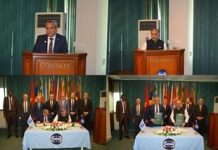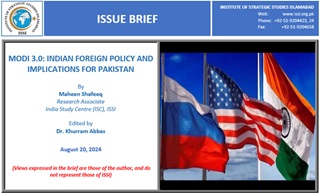India, being the most populous country and so-called ‘largest democracy’ in terms of numbers, recently concluded its longest electoral exercise spanning over 46 days (April 19 – June 4, 2024). Failing to secure a clear majority, the Bhartiya Janata Party (BJP) formed a coalition government as part of the National Democratic Alliance (NDA). Mr. Narendra Modi took oath as India’s Prime Minister for the third consecutive term on June 9, 2024. There are obvious questions about how India’s foreign policy would fare in ‘Modi 3.0.’
Evidently, Mr. Modi has preferred continuity over change. This is reflected in the retention of key members of his cabinet — including Amit Shah as Home Minister, Rajnath Singh as Defence Minister, Ajit Doval as National Security Advisor, and Dr. S. Jaishankar as External Affairs Minister. With this, he apparently seeks to sustain efforts aimed at enhancing India’s close relationships with major global powers – particularly the U.S. and Russia.















